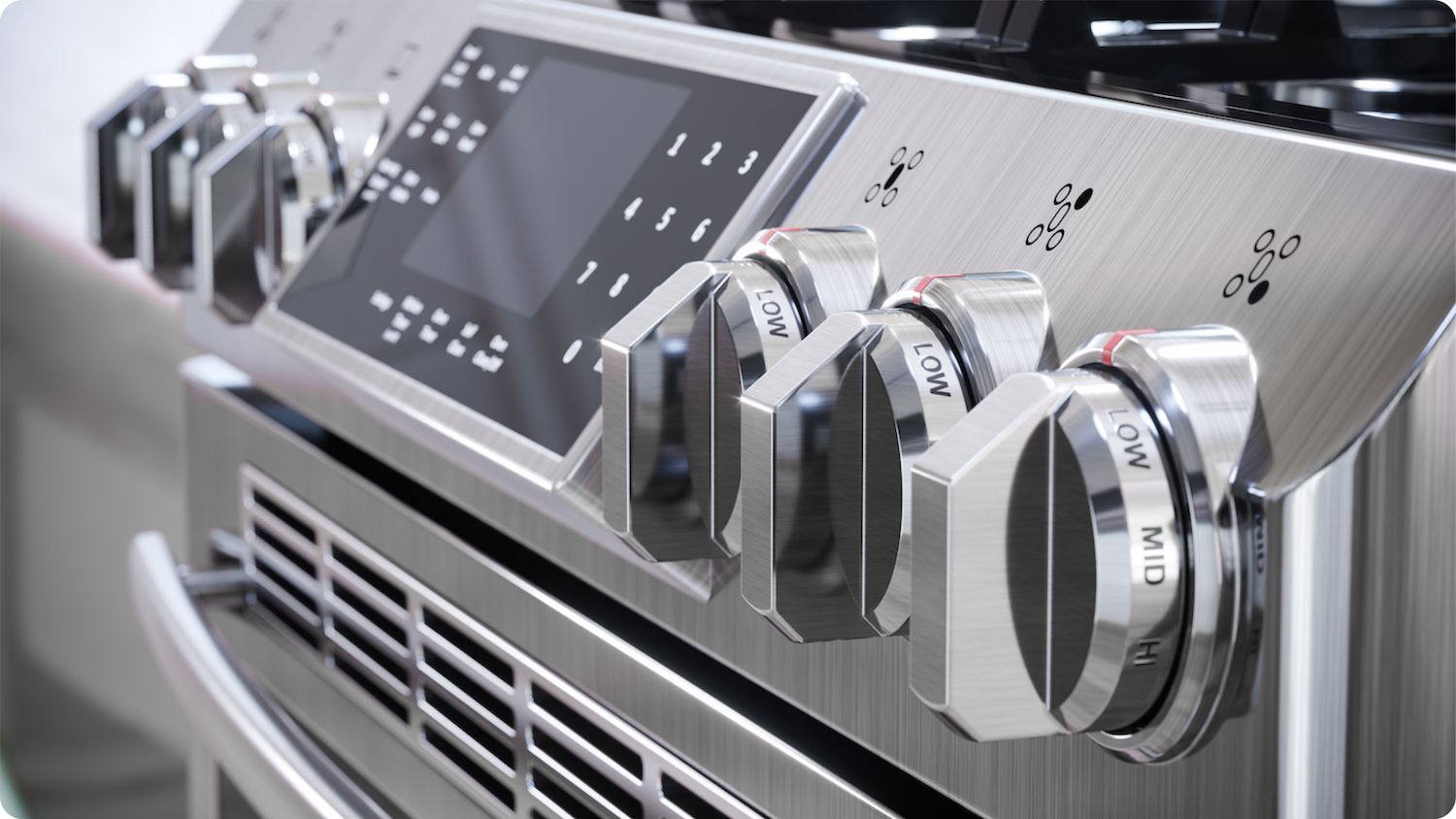Gas vs. Electric Stove: Which To Buy?
If you’re in the market for a new range, you’re probably already thinking of gas vs electric stove. There are many factors that can influence that decision, from your cooking habits or ambitions to your home’s location. There are also trade-offs no matter what you decide, but to make the best decision it’s ideal to know the specifics of each pro and con.
When you’re not necessarily moving into a new home or new construction, but your old range breaks, then you might automatically make the decision to replace it with one that runs on the same fuel as the old one, be that electric or gas. Statistically speaking, most of the homes in the US rely on electric, no matter how much hype around gas stoves is happening in the real estate market.
And the truth is that most of the time electric ranges do outperform gas models. Of course, there are exceptions, and if you check Consumer Reports range ratings, you’ll see plenty of models with top scores regardless of the type of fuel.
Gas vs. Electric Stove: What To Consider?
The first step in the gas vs electric stove debate is knowing what to look for. Yes, the final decision may rest on your cooking preference, but many people switch between the two and find that their allegiance can change.
The flame heating in gas stoves provides cooking accuracy and versatility, but electric ranges are safer, therefore preferred by families with young children. Cleaning can also be a consideration, as busy parents prefer a range that’s easy and quick to clean, which is the case of an electric stove.
While preference and features play a role for sure, cost is almost always a consideration. And not just the acquisition price, but also the cost to operate.
When comparing performance, there are certain things to research and take into account, such as high heat performance, low heat, baking or broiling. Of course, these could differ from one model to another, but you’ll be able to find which fuel type has the edge.
High Heat & Low Heat Comparison
High Heat is important because it maximizes the output of large burners. Let’s say for instance you need to boil a big pot of water to make pasta, you wouldn’t want to do that on a small burner, would you? You also wouldn’t want it to take a very long time.
To that extent, manufacturers have been constantly trying over the years to maximize the heat output. Generally speaking, electric ranges are faster in this category.
At the opposite end, Low Heat reflects a stove’s ability to maintain a low, steady simmer which is very important as well. A cooktop with erratic simmering can ruin sauces or desserts, if you’re melting chocolate or any other activity that requires low heat.
Here as well electric ranges offer a slight edge. A Consumer Reports test showed that more than 60% of electric models earned Excellent marks for low heat tests.
Which Is Better For Baking?
Gas vs electric stove would not be a real battle without a bake off. Desserts are sometimes more complicated to make than delicate sauces or any other dish. Whether you’re a fan of baking cakes, browned cookies or pies, you need an appliance that bakes evenly.
This is the one spot where gas ranges shine. Statistically speaking more gas range models and brands earned high ratings in baking than electric models. That’s not to say an electric range will be terrible for baking desserts, but if you’re a passionate baker, you might just be safer with a gas model.
Which Is Better For Broiling?
Broiling seems to be one of the biggest differences in performance between gas and electric ranges. Many people assume that gas models are better at broiling because they cook with a flame. However, Consumer Reports tests have shown that, in fact, gas ranges underperform when compared with electric models. 61% of electric ranges score Excellent or Very Good in this area, while less than 20% of gas models do the same.
Which Is More Efficient?
As mentioned above, cost is almost always a consideration when deciding between a gas vs electric stove. And many people today worry about the efficiency of their appliances, no matter what that appliance is.
Generally, electric stoves tend to be more expensive to purchase than gas models, but this highly depends on the brand and model you choose. The same goes for operating costs, as it’s hard to compare since utility rates differ from region to region. Typically, a gas range costs 10-30% less to run on an ongoing basis, but that might not be much of a difference in absolute value.
Electric stoves are more energy-efficient. The reason why gas models may be cheaper to operate is because gas is cheaper than electricity, but they do waste more energy. Electric ranges transfer about 74% of energy to food, while gas models only transfer about 40%. A study in the American Council for an Energy-Efficient Economy’s Summer Study on Energy Efficiency in Buildings showed that, if you’re looking for the most efficient range, induction cooktops are even better, with almost 90% of energy transferred to food.





